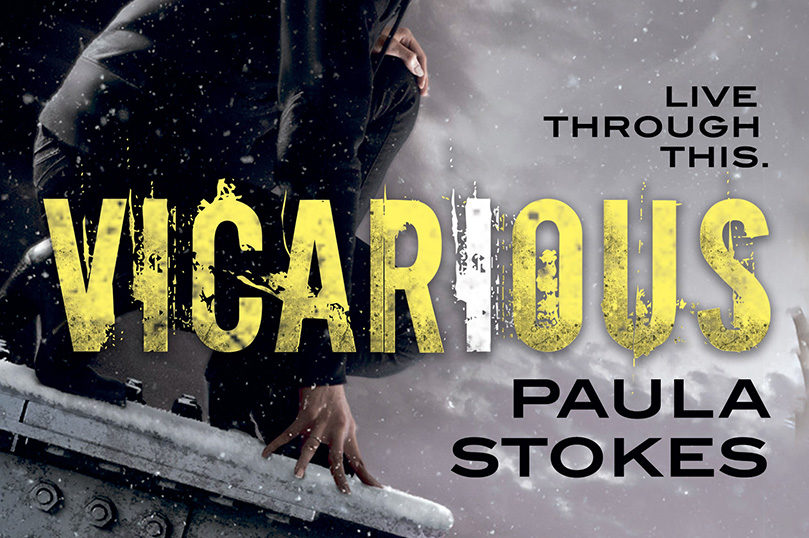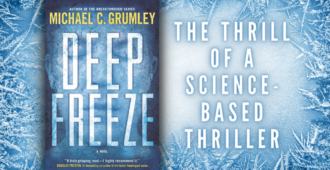opens in a new window Written by Paula Stokes
Written by Paula Stokes
“Write what you know” and “write what you love” are often-repeated bits of writing advice, and although I prefer the second one (because let’s face it, there’s a lot of cool stuff I don’t know), to me what really makes a story come alive is when you write what you feel.
A lot of writers are reluctant to do this. It’s easy to share our occupations and hobbies with readers, but when it comes to sharing actual feelings, many people turn toward The Emotion Thesaurus or similar. There is absolutely nothing wrong with that book, and I’ll be the first to admit that I sometimes pull it out when I notice an overuse of lazy blocking creeping into my manuscripts. But if you’re relying on outside sources when it comes to the crucial emotional beats of your story, you’re cheating both your characters and your readers.
By the time we’re teens, most of us have experienced both the highs and lows of what life has to offer. Channel those memories, relive them, explore the way joy and pain and anger and guilt affected you both internally and externally. What thoughts ran through your mind the first time you experienced real loss? How did your body respond physically on the happiest day of your life? You might think you don’t have a frame of reference for a certain plot point, but if you dig deep enough, chances are you do. For example, the fear of losing your parents in a crowded department store at age four might seem to have nothing in common with the fear of waiting for biopsy results alone at age forty. But aren’t both of these characters probably filled with dread, terrified at what the future holds, wondering if their idea of normal will be forever altered?
Mining your emotions like this can be difficult to do for a couple of reasons. First, it might require you to relive painful or uncomfortable moments. My main character in Vicarious, Winter Kim, is suffering from PTSD, part of which manifests as episodes of hopelessness and despair. I was in a very dark place when I wrote the first draft of the novel, so back then channeling my pain was therapeutic. It was almost like I had created a fictional surrogate who could carry part of it for me. But revising the book and drafting the sequel were both difficult because a lot of time had passed and I was feeling better. I’m easily affected by other people’s moods, and apparently that includes fictional people. It was hard to read passages where Winter is overwhelmed by sadness and then remember how I had felt the same way. It was difficult to go back there, but I tried to re-embrace the same frame of mind throughout writing and revising both Vicarious and the sequel so that Winter would continue to feel authentic. (Obviously you shouldn’t do this with a memory that is so traumatic it might trigger episodes of depression, anxiety, etc. The quality of your work is important, but it is never more important than your physical or mental health.)
The second reason it’s hard to write what you feel is that the negative reviews can feel sort of personal. If you’re an astronaut or a gamer and you put astronaut stuff or gamer stuff into a book and some reviewer says it’s boring or dumb, well, who cares? We don’t all like the same stuff. But if you pour forth your post-breakup pain (as I did in one of my contemporary books) only to have a bunch of strangers decide that your character is weak, desperate, and anti-feminist for wanting her boyfriend back, that might sting a little. It did for me anyway 😉
But despite those caveats, I have no regrets about allowing my books to become so personal. To date I have written a headstrong Renaissance girl, a heartbroken soccer star, a detached and cynical adopted boy, a tennis player with survivor’s guilt, and an emotionally scarred stunt woman. I am none of those people. I have never been any of those people, and on the surface those characters seem to have little in common with one another. However, one thing that is routinely said about my writing, even in the critical reviews, is that my characters feel real—fleshed out, vulnerable, relatable. I credit this to letting my innermost feelings find their way into my stories, to sharing deeply personal pieces of myself with my characters.
Not every reader will be able to relate to a particular story or setting, but we can all relate to emotions. That same breakup contemporary that inspired so much scorn also resulted in a flurry of emails from people who read the book while they were struggling with their own breakups. Those readers were comforted by the main character’s journey. Those readers found not just escape, but hope within the book’s pages. And I found hope in their words.
Write bravely. Write honestly. Write what you feel. The rewards are worth the risks.
Buy Vicarious here:
opens in a new window opens in a new window
opens in a new window opens in a new window
opens in a new window opens in a new window
opens in a new window opens in a new window
opens in a new window opens in a new window
opens in a new window
Don’t forget to follow Paula Stokes on Twitter (@pstokesbooks), on Facebook, or visit her website.







Good points. I think all of one’s central characters should/must represent them on some level–but not necessarily who they are *today*. After all, the experiences that move us to write a certain story most often took place in our past, if not our distant past.
Anyway, most would agree that the best stories are centered around interesting characters. Characters with genuine emotions, as you say. I think such characters come directly from the subconscious and (with that) have the ability to dredge up the good, bad and ugly. I also believe they develop a life of their own early in the writing process. In a way, then, it becomes about writing what one’s *characters* feel, true?
While the idea of using characters as emotional surrogates is wonderful, I think there are times when they can even function as ‘midwives’ to emotions that might otherwise have not found expression. One gets to “vicariously” experience (at least initially) what one might have been too afraid to face directly, or what was simply buried too deeply.
Discussion idea: What are the parallels between authors and actors, in the way characters are given expression? Might this form of emotive writing you’re promoting be called “method writing?”